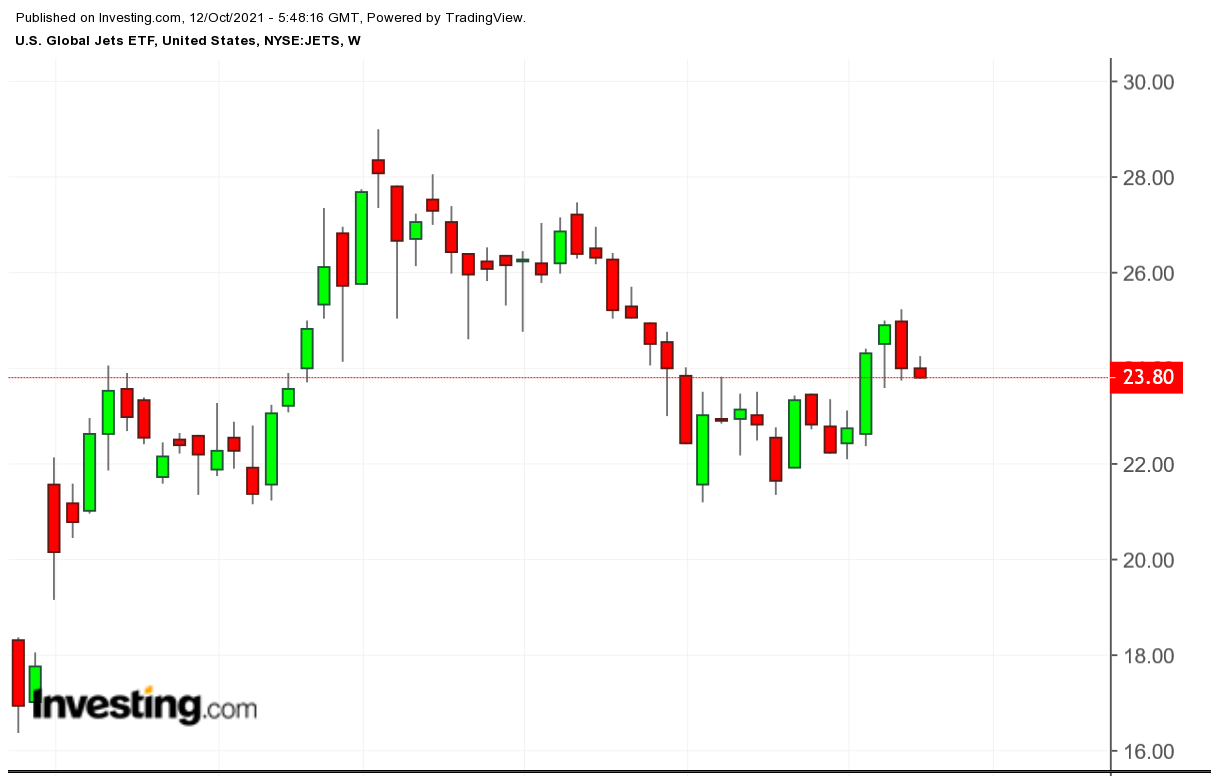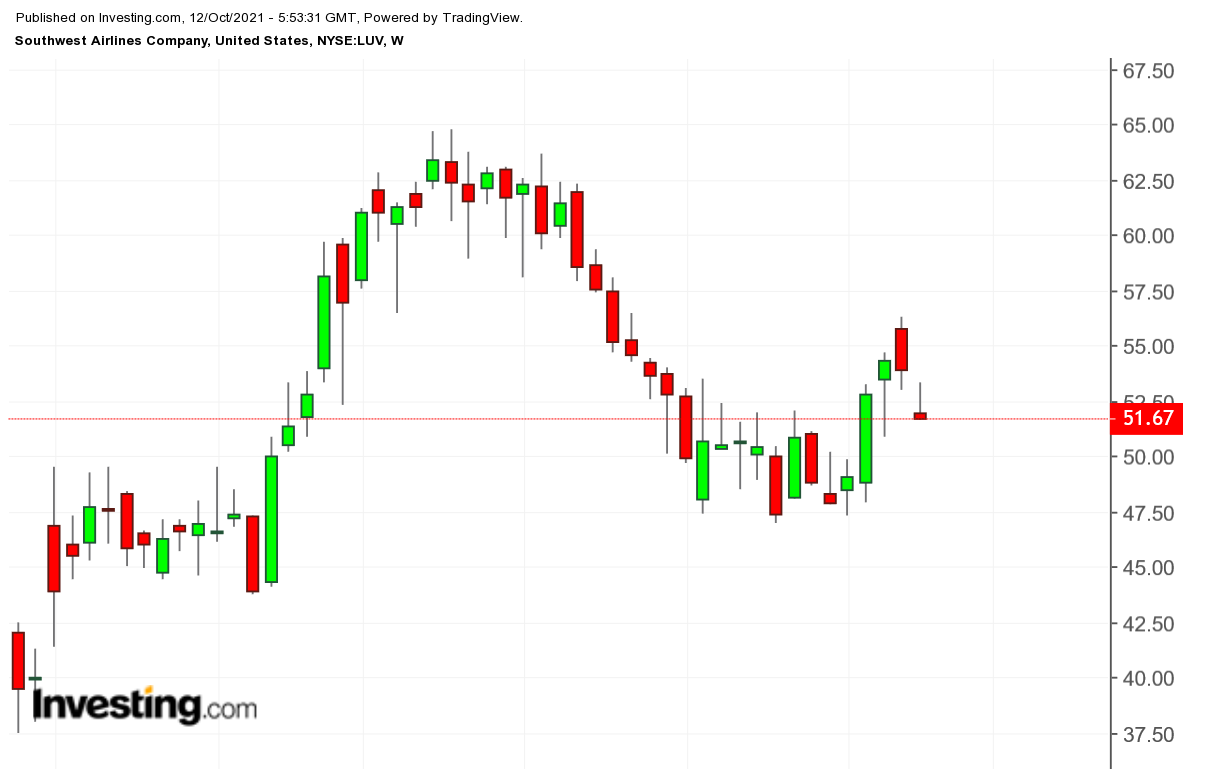Airline stocks, one of the most popular reopening trades, have lost their charm this year after a strong rebound since the March 2020 plunge.

The US Global Jets ETF (NYSE:JETS) is down more than 13% since its March peak, despite the clear signs of strength in the US domestic travel. On Wednesday, Delta Air Lines (NYSE:DAL)—the first major carrier to release earnings—is expected to report its first profitable quarter after suffering steep losses during the pandemic.
American Airlines (NASDAQ:AAL), which is the most financially beleaguered of the US operators, may again show a small loss when it reports next week. On the surface, it looks like great news that airlines are making a solid recovery as their cash flows improve and more and more people are taking flights after a long pandemic break.
Despite this recovery, there is little evidence that lucrative business travel is recovering as fast as airline CEOs had hoped for. The next stage of growth, which will depend on the resumption of international and business travel, is still facing a variety of uncertainties as new COVID variants emerge and companies look to cut costs. This unevenness of the travel recovery is the main reason that investors are remaining on the sidelines.
Delta told investors in July that corporate travel is poised to recover to 60% of 2019 levels by September, up from 40% in June and 20% in March. But that equation might have changed drastically since the arrival of the Delta variant of COVID-19 this summer which forced many countries to impose lockdowns and extended the work-from-home policies.
Domestic Airlines Are More Attractive
A Bloomberg survey of 45 large businesses in the US, Europe and Asia shows that 84% plan to spend less on travel post-pandemic. A majority of the respondents cutting travel budgets see reductions of between 20% and 40%, with about two in three slashing both internal and external in-person meetings. The ease and efficiency of virtual software, cost savings and lower carbon emissions were the primary reasons cited for the cutbacks.
Due to a slow pick-up in corporate travel, many analysts don’t see much value in the top airline stocks, including Delta and American Airlines. Instead, they are recommending small airlines which have robust local coverage.

Barclays analyst Brandon Oglenski, in a note last week, said the low-cost airlines are a safer play in the current environment. The bank upgraded Southwest Airlines (NYSE:LUV) to overweight from equal weight, raising its price target on Southwest to $75 per share from $64. The new target is 38% above where the stock closed Friday.
“Southwest affords long-term investors a fortress balance sheet, favorable orderbook with Boeing (NYSE:BA) and a historically profitable business model. We see the company leveraging low cost Boeing MAX 737 deliveries to execute network expansion that was delayed pre-pandemic due to the MAX grounding.”
Bottom Line
The majority of airline stocks are already reflecting a strong rebound in domestic travel after the rollout of vaccines in the US. The next phase of growth is very much dependent on the resumption of international and business travel.
